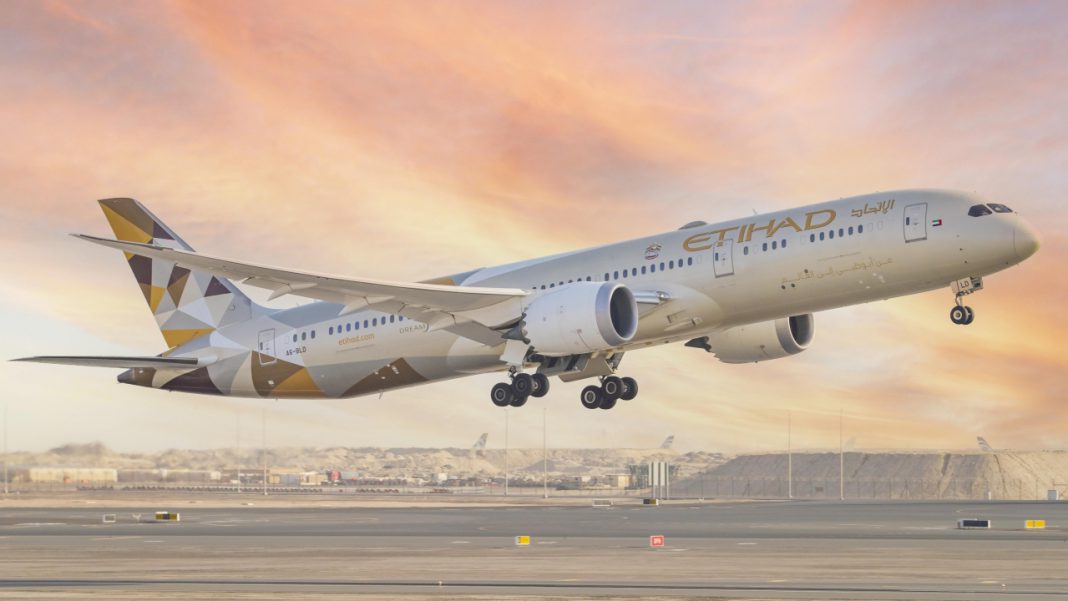UAE national carrier Etihad Airways announced its H1 2024 results, recording a 48 percent increase in profit after tax achieving AED851 million ($232 million), a significant increase from AED575 million ($157 million) in H1 2023.
Total revenue increased 21 percent to AED11.7 billion ($3.2 billion), from AED9.6 billion ($2.6 billion) in H1 2023, mainly due to passenger revenue, which saw a 24 percent year-on-year increase, fuelled by strategic network expansion and increased flight frequencies.
There was also a notable 10 percent increase in cargo revenue compared to the same period of 2023, primarily driven by higher demand and higher cargo capacity of the fleet.
Etihad carried 8.7 million passengers over the first half of the year, up 38 percent year-on-year, which is approximately three-times higher than IATA’s reported average growth rate of 13 percent for Middle Eastern carriers in the same period. The average passenger load factor stands at 85 percent for H1 2024 and remains unchanged compared to the first half of last year.
Mohammed Ali Al Shorafa, Chairman of Etihad Aviation Group, said, “Etihad’s 8.7 million passengers in the first half of the year accounted for over 63 percent of the total 13.7 million passengers at Zayed International Airport from January to June 2024. This total represents an approximate 34 percent increase in passenger numbers through the airport compared to the first half of 2023, highlighting the airline’s key role in boosting Abu Dhabi’s tourism and trade.”
Etihad, he stated, plays a pivotal role in advancing Abu Dhabi’s tourism and economic development.
The strategic growth and network expansion not only bolster the connectivity of Etihad’s capital but also significantly contribute to the prosperity of the UAE’s economy, she added.
Etihad Aviation Group CEO Antonoaldo Neves said: “”Notwithstanding global aircraft shortage, we have 16 more aircraft in our fleet of 92 than at the same point last year, including three A321neos. We are bringing six A321neos into operation this year, equipped with advanced CFM LEAP 1A engines.”
“In the next 18 months, we expect to add more than 20 new-generation aircraft to our fleet, which offer reduced emissions and up to 20 percent more efficiency compared to previous models,” he added.


